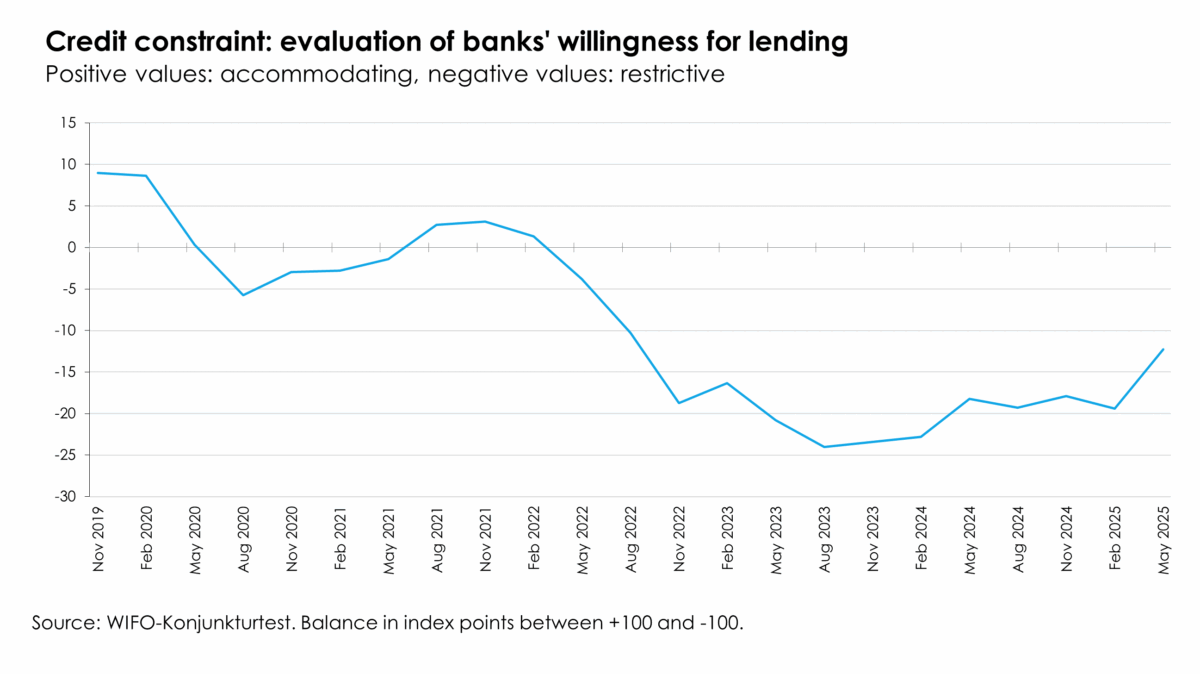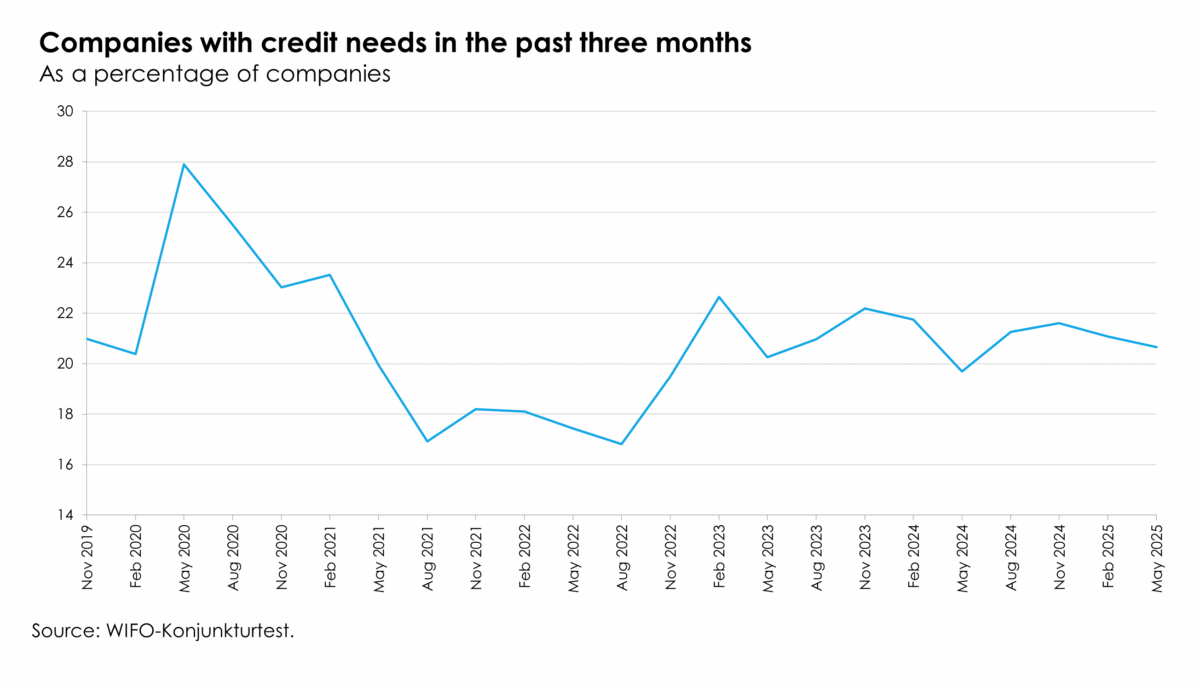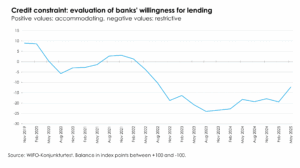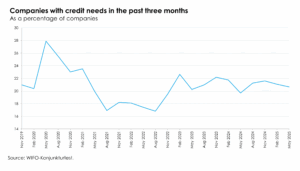WIFO-Konjunkturtest
Part of the Joint Harmonised EU Programme
of Business and Consumer Surveys

WIFO-Konjunkturtest
Part of the Joint Harmonised EU Programme
of Business and Consumer Surveys

WIFO-Konjunkturampel (economic traffic light)
The results of the WIFO-Konjunkturtest (business cycle survey) for June show a slight improvement in the overall economic assessment. At –3.9 points (seasonally adjusted), the WIFO economic climate index was 0.7 points higher than in May. Business situation assessments improved slightly compared to the previous month (+0.3 points), but remained in the sceptical range at –3.7 points. Economic expectations rose (+1.1 points), but also remained in pessimistic territory at –4.3 points. The industrial economy lost some of its momentum again in June, particularly in the consumer goods sectors. Slight index improvements were seen in the services (expectations), construction and retail sectors (current situation). As in the previous month, the WIFO economic traffic light showed ‘green’ in June, once again indicating a stabilisation of economic sentiment.
Economic Sentiment Down in the EU and the Euro Area; EmploymentExpectations Broadly Stable in Both Regions
In June 2025, the Economic Sentiment Indicator (ESI) decreased in both the EU (–1.0 points to 94.0 points) and the euro area (–0.8 points to 94.0 points). The Employment Expectations Indicator (EEI) stayed broadly unchanged compared to May (EU: ±0.0 points at 97.5 points, euro area: +0.1 points to 97.1 points). Both indicators score below their long-term average of 100 points.
Credit Conditions of Austrian Companies
The credit questions of the WIFO-Konjunkturtest (business cycle survey) allow us to present the assessments and experiences of companies with regard to bank lending. The credit questions are asked quarterly in February, May, August and November.
In May 2025, companies' assessments of banks' willingness to lend (i.e.: the credit hurdle decreased) – defined as the balance of the proportion of companies that describe banks' lending as accommodating (positive values) and the proportion of companies that describe banks' lending as restrictive (negative values) – improved significantly compared to the previous quarter (+7.1 points) but remained in negative territory at –12.3 points. There are differences according to company size: the credit hurdle is higher for smaller companies (less than 50 employees) (–15.1 points) than for medium-sized companies (50 to 250 employees: –6.4 points) and large companies (more than 250 employees: –11.9 points).
At 20.7% (long-term average: 20.9%), the survey results for the aggregate (excluding retail) show virtually unchanged demand for credit (–0.4 percentage points compared to the previous quarter). Demand for credit in the manufacturing sector remained above average (22.6% of companies reported a need for credit), while demand for credit in the services sector (19.7% of companies), the construction industry (18.5%) and the retail sector (14.1%) was average or slightly below average. In terms of company size (excluding retail), 21.2% of smaller companies (less than 50 employees) recently reported a need for credit, 21.0% of medium-sized companies and 19.3% of larger companies (more than 250 employees).
Of the companies with credit requirements (excluding retail), around 30.2% had to cut back on the amount or conditions (15.5% reported worse conditions, 7.5% lower amount and 7.3% worse conditions and lower amount than expected). This figure is below the average of the past five years (31.2%). Around 39.3% of companies with a need for credit were able to obtain it as expected (5-year average: 42.5%). At 29.4%, the proportion of companies with credit requirements that did not receive a loan or did not apply for one was also above average (5-year average: 26.4%; around 6% of all companies surveyed) because the loan application was rejected by the bank (5.6%), the conditions were unacceptable (11.8%) or they did not attempt to obtain a loan due to lack of opportunity (13.1%).
Credit Constraints and Credit Needs
Recent issues: WIFO-Konjunkturtest
Quarterly results of the WIFO-Konjunkturtests
Special issues: WIFO-Konjunkturtest
Recent issues: WIFO-Investitionsbefragung
Contact
For general enquiries, please contact konjunkturtest@wifo.ac.at.













